
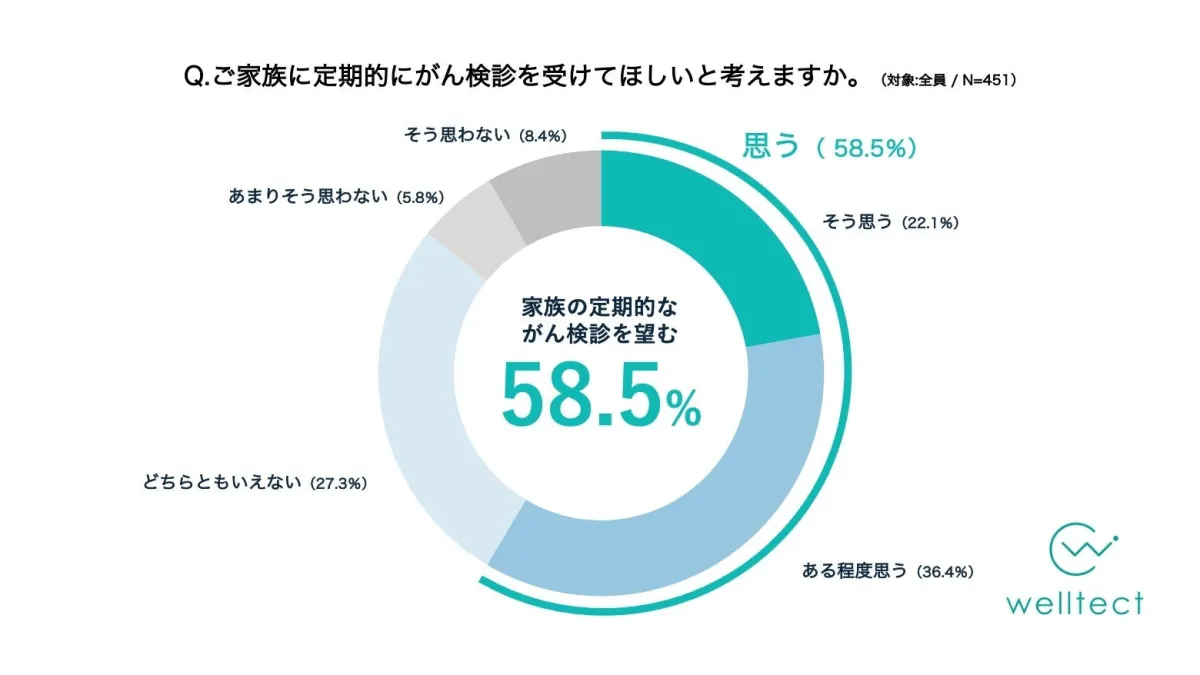
Cancer Screening Awareness in Japan: A Call for Family Health Engagement
Understanding the Cancer Screening Gap in Japan
In recent findings by Wellfort, a Tokyo-based company specializing in health monitoring services, a concerning trend has emerged regarding cancer screening awareness among Japanese individuals. Conducted in the lead-up to International Family Day, a survey targeting working adults aged 20 to 60 revealed that a staggering 56.3% did not undergo necessary cancer screenings. This statistic sheds light not only on the complacency toward personal health but also starkly contrasts with the significant concern many have for their family's health.
Importance of Early Detection
According to the Ministry of Health, Labor, and Welfare, cancer remains the leading cause of death among Japanese citizens, highlighting the critical need for early detection and treatment. The findings from Wellfort's survey reveal that while many acknowledge the importance of health check-ups, the reality of regular screening practices is sobering. A substantial 58.5% of those surveyed believe their family should receive regular cancer screenings; however, less than half make the appointments themselves.
Key Reasons for Neglecting Screenings
The survey outlined several primary reasons for the overall low screening rates. The dominant response, chosen by 36.6%, was that individuals found the process of getting screened to be "troublesome and inconvenient." Furthermore, half of these individuals expressed that time constraints and the burden of travel hindered their ability to attend screenings. Alarmingly, another one-third stated that they did not feel the need for screening until they experienced noticeable changes in their health, which only prompts them to consider seeking help. This mindset is particularly worrying in a society where early cancer detection could significantly improve outcomes.
Family Health and Behavioral Change
Notably, there is a stark juxtaposition between how individuals prioritize their health versus that of their loved ones. Those who expressed a desire to remain healthy for their family, accounting for 30.5%, demonstrated a more proactive approach to managing their health through improved diet and exercise, emphasizing the motivation that family health brings. Interestingly, individuals prompting their families to undergo health check-ups achieved a greater awareness of family cancer screening situations compared to those who simply reviewed results together. This indicates the need for regular health dialogues within families, as their impact could lead to better health outcomes overall.
Rising Demand for At-Home Cancer Testing
In a shifting landscape, the survey revealed that around half of the participants expressed interest in at-home cancer risk testing kits. This shift towards more accessible self-testing options highlights a growing desire for more manageable and convenient health assessments. Traditional hospital visits can often feel isolating, yet at-home testing facilitates shared experiences with family or partners, thus fostering a more engaging approach to health management.
Conclusion and Community Engagement
Aligned with the survey results, Wellfort is launching a limited-time offer on its at-home cancer risk test kit, Noah4. From now until May 14, prospective users can experience this essential health tool at a special price, with details available via their website.
Daisaku Honda, Chairman at Wellfort, commented on the data, stating, "This survey not only highlights the importance families place on health but also unveils the tendency to neglect personal health maintenance. Early detection of cancer is vital, and many cases turn serious before symptoms appear. As we approach International Family Day, we hope to encourage individuals to re-evaluate their health and that of their loved ones."
In summary, the findings from Wellfort suggest a transformative opportunity for society: promoting regular cancer screenings not just for oneself but as a collective family obligation. As a community, we need to confront the discrepancies between health intentions and actions, laying down a path towards improved health outcomes for all families in Japan.
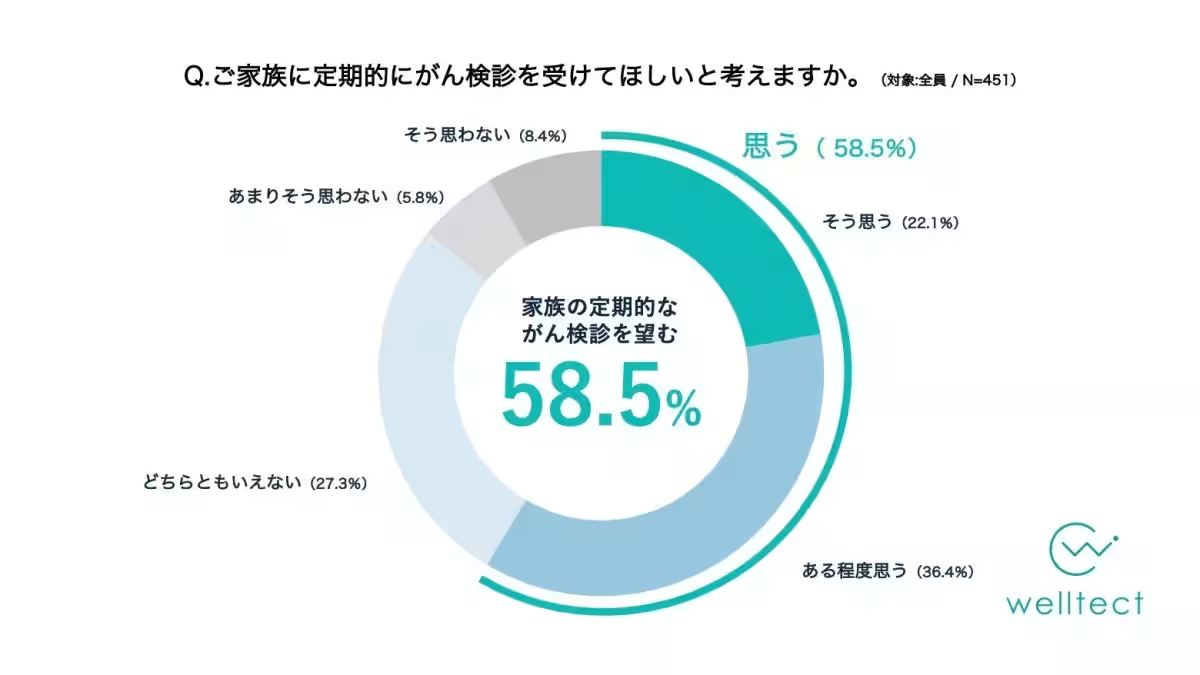
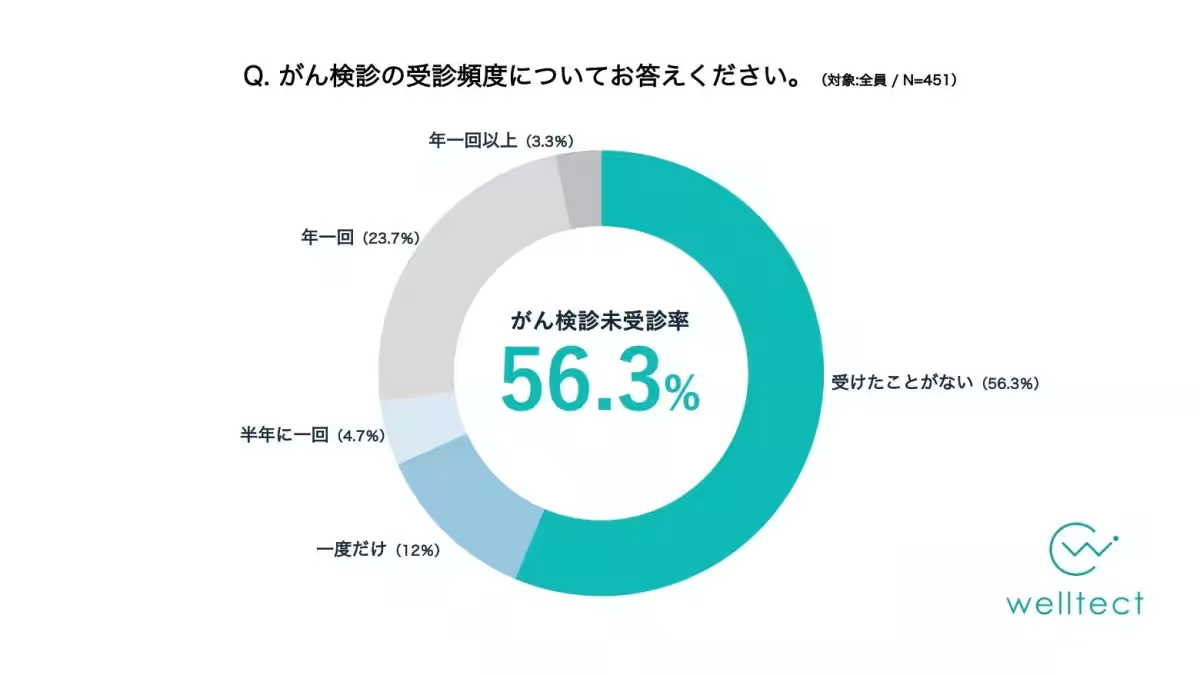
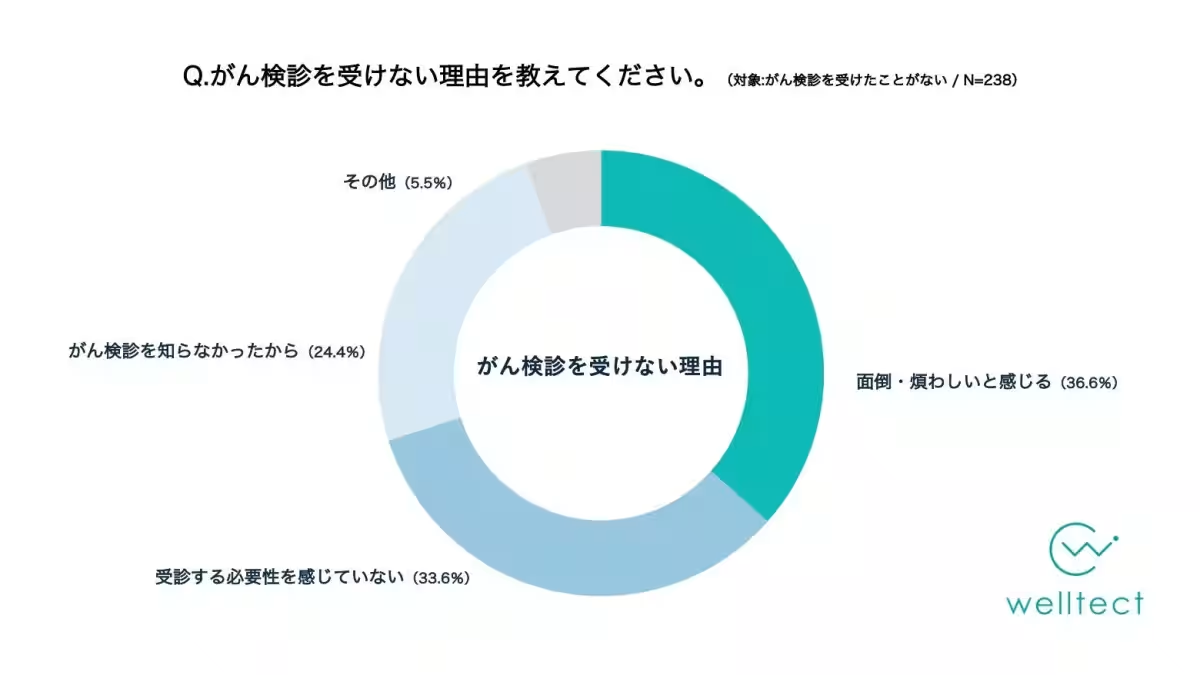
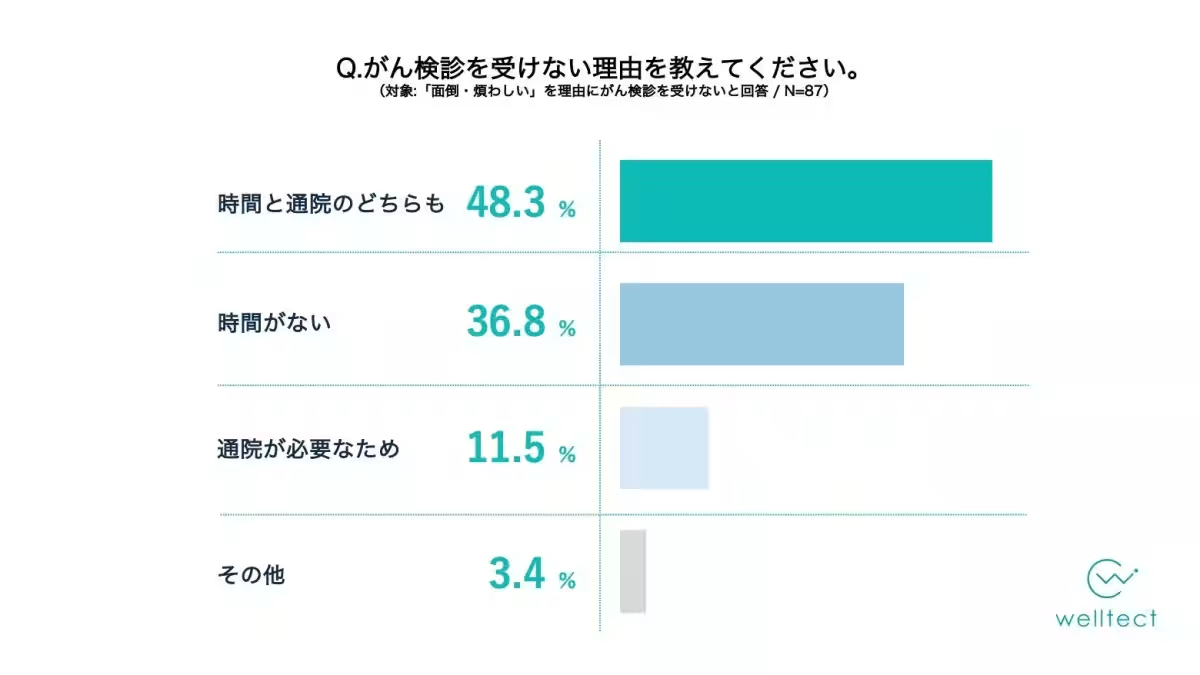
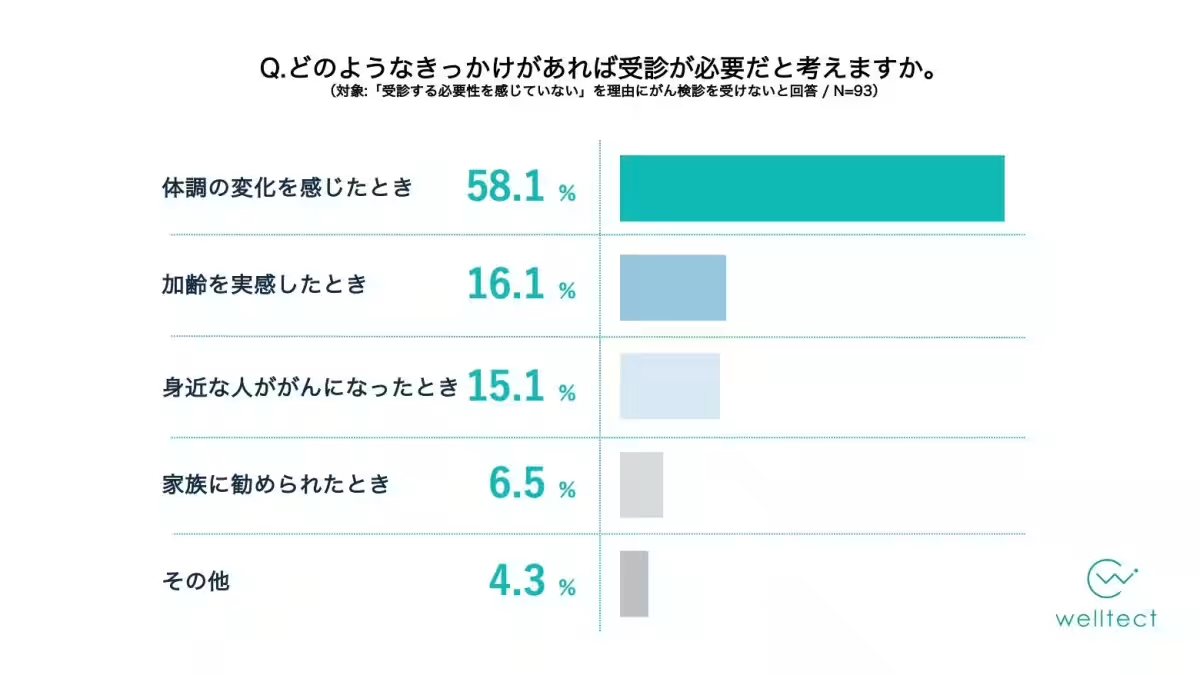
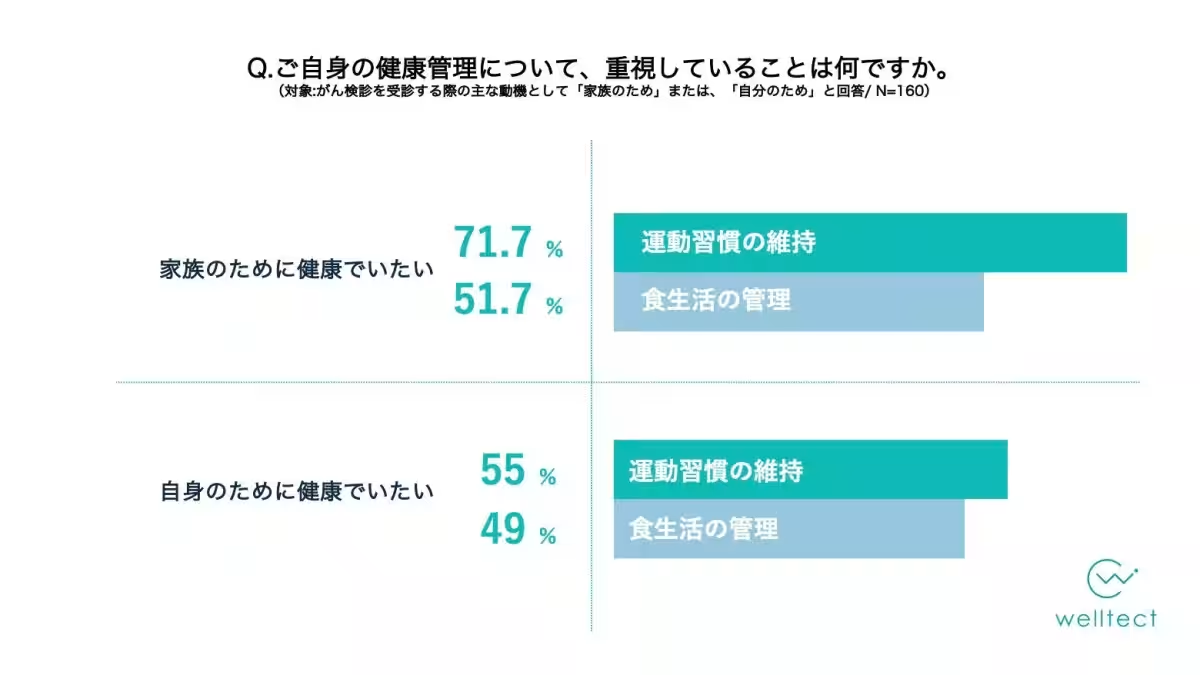
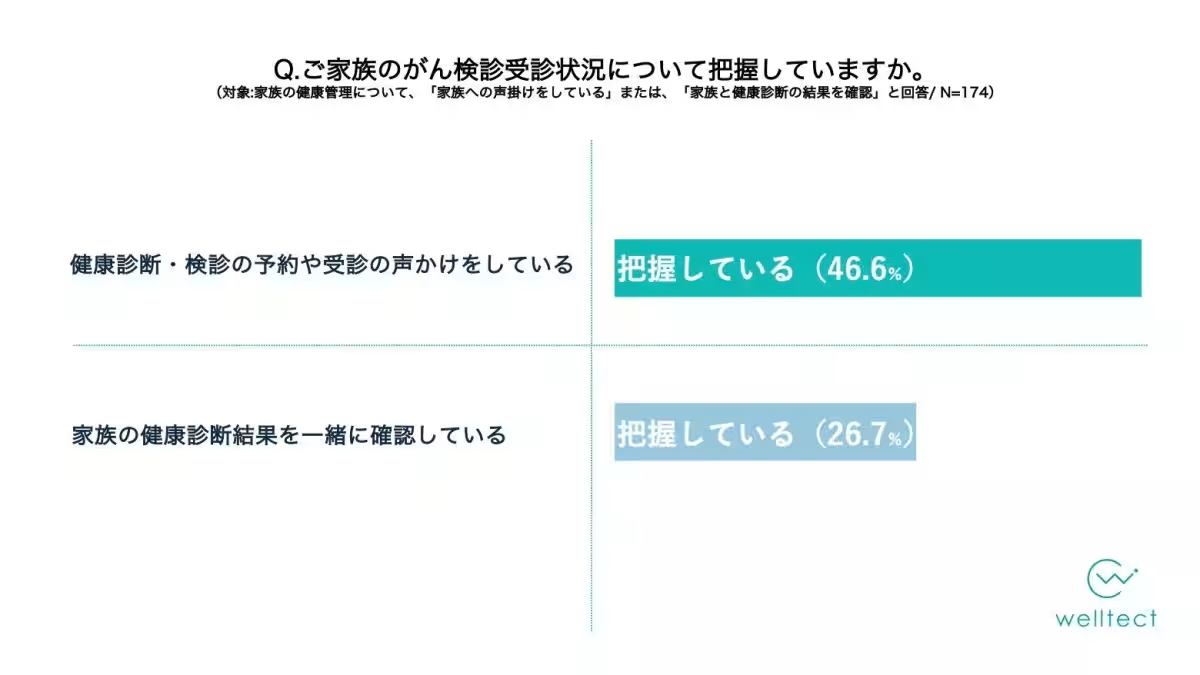
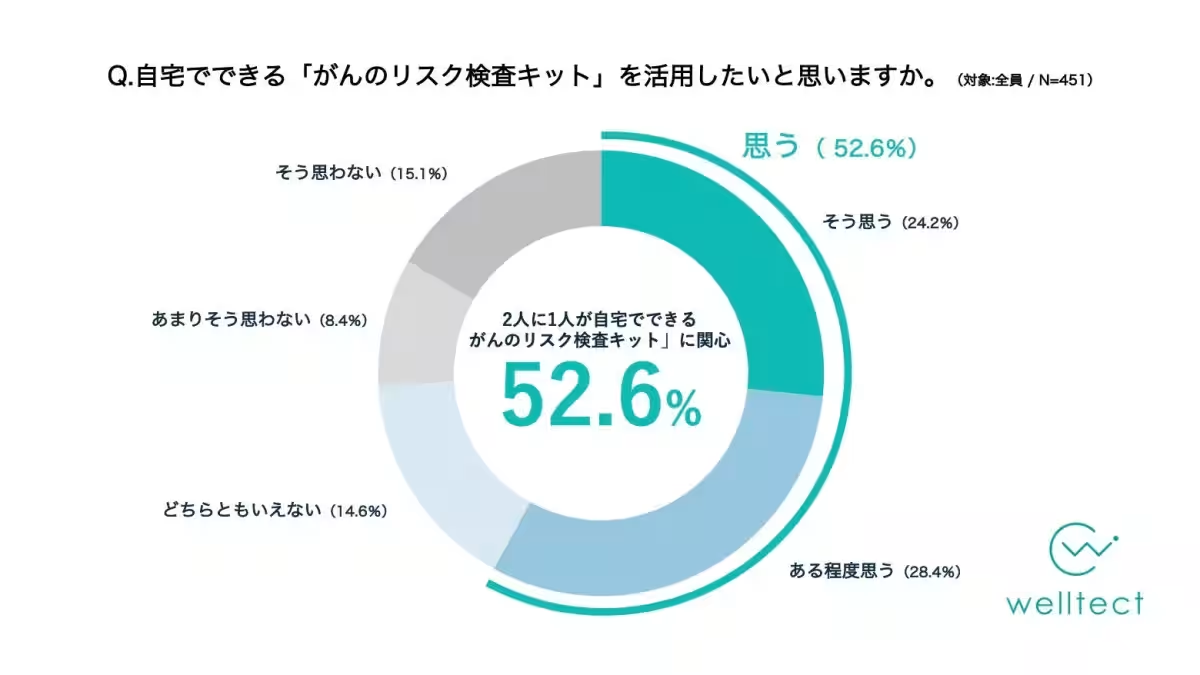
Topics Health)










【About Using Articles】
You can freely use the title and article content by linking to the page where the article is posted.
※ Images cannot be used.
【About Links】
Links are free to use.